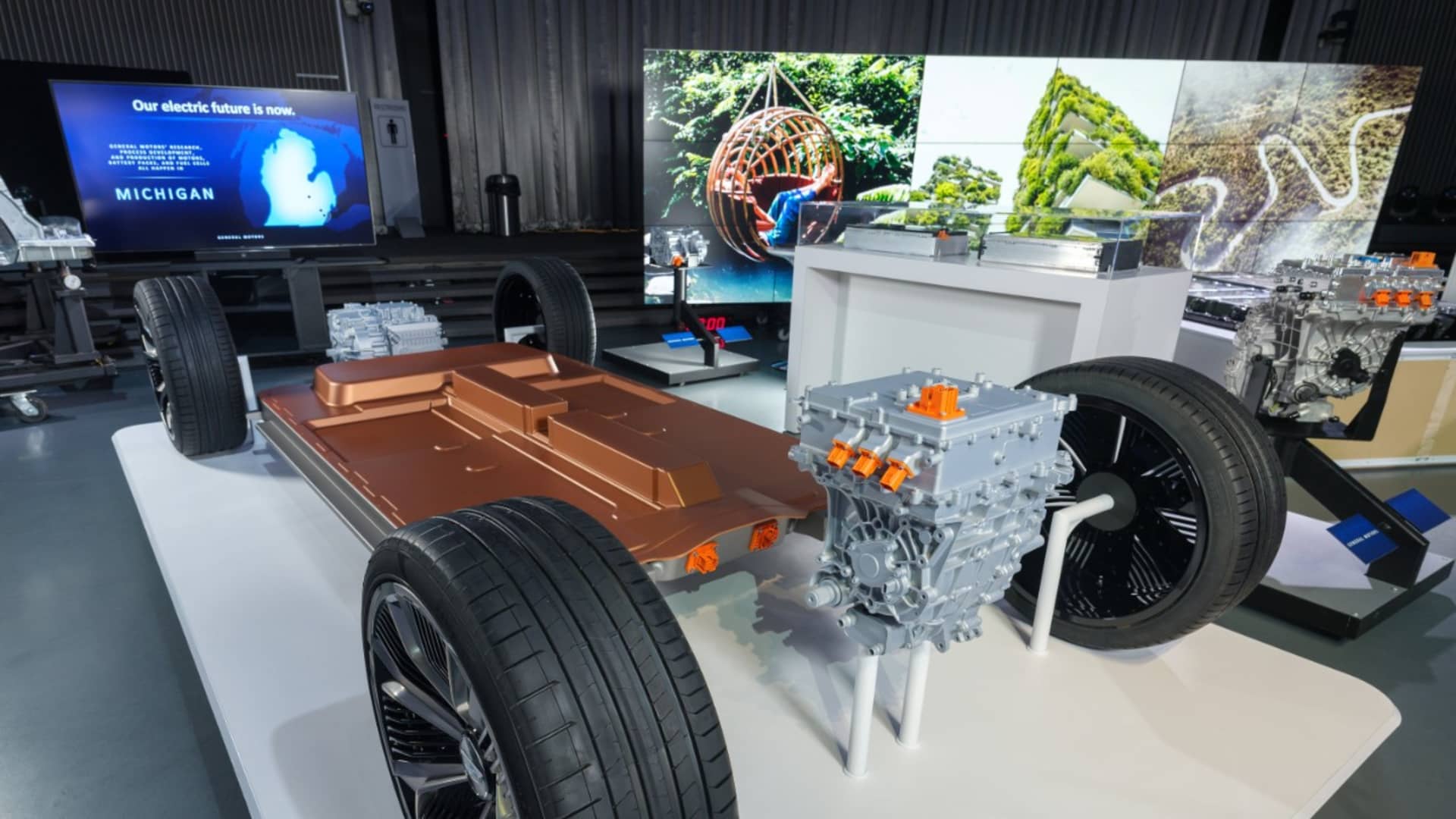A staff member checks a Bentayga SUV on the Bentley production line at its factory in Crewe, England, on Dec. 7, 2022.
Phil Noble | Reuters
Bentley Motors is once again pushing back a target to exclusively offer all-electric vehicles, with plans to continue leaning into plug-in hybrid electric vehicles until at least 2035.
The British maker of ultra-luxury performance cars on Thursday said it continues to have "an ambition to be building only fully electric cars from 2035," but the adjustment is needed due to changing market conditions.
Bentley Chairman and CEO Frank-Steffen Walliser said "there's not a lot of demand" for EVs from current customers. But he said the automaker needs to meet legislation and be ready for a new generation of customers.
"Legislation, for sure, is driving electrification … but also competition," Walliser said during an online media event Thursday. "We have to be honest, there's not a lot of demand."
The Volkswagen-owned carmaker initially said in 2020 that it planned to exclusively offer all-electric vehicles by the end of this decade. Former CEO Adrian Hallmark days before leaving the company said those plans would be delayed by a few years but did not give a set timeframe.
Bentley Continental GTC Speed in Kingfisher
Adam Jeffery | CNBC
Bentley said it plans to offer a new EV or plug-in hybrid electric vehicle each year until 2035, starting with its first EV, a "Luxury Urban SUV," in 2026. The EV was initially expected to be produced starting next year.
"We want to produce PHEVs as long as markets and customers demand it," Matthias Rabe, head of Bentley's research and development, said during the Thursday briefing.
Rabe said Bentley may continue to release vehicles with traditional internal combustion engines in the years to come.
Walliser, who succeeded Hallmark in July, said the automaker's first EV will be smaller than its traditional vehicles, including its current Bentayga SUV.
Hallmark previously said the delay in Bentley's first all-electric vehicle was the result of software issues as well as difficulty with developing the vehicle's architecture to Bentley's standards. He had said those challenges were the primary driver behind delaying its EV plans, rather than the changing market conditions.
"Four years almost to the day that Bentley initially outlined its Beyond100 strategy, we adapt to today's economic, market and legislative environment to initiate a major transformative phase for tomorrow," Walliser said in a release.
Along with the changes, Bentley also is changing the name of its business strategy from Beyond100, a nod to the more than century-old carmaker, to "Beyond100+."
Bentley is well known for lavish, large and powerful vehicles with 12- and 8-cylinder engines that can cost millions of dollars for special- or exclusive-edition models. However, the automaker ended production of its famed "W12" engine earlier this year, as it focuses on PHEVs with 8- and 6-cylinder engines.
PHEVs feature an internal combustion engine combined with a hybrid system and have a larger battery than traditional hybrid vehicles as well as a plug to recharge the vehicle's battery. They typically allow drivers to travel a certain number of miles using the battery before the engine is needed to power the car or truck.

 3 weeks ago
3 weeks ago
















